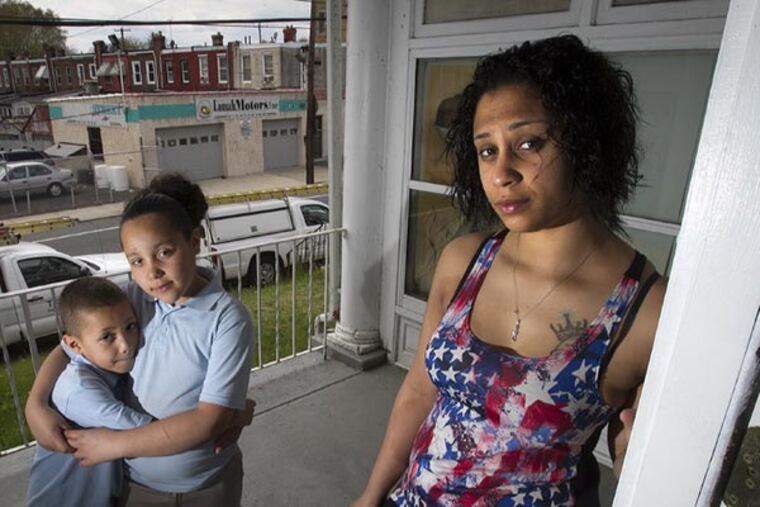Hunger-fighter determined to share story
Even if she hadn't been featured in a documentary film, Barbie Izquierdo would be a star.

EVEN IF SHE hadn't been featured in a documentary film, Barbie Izquierdo would be a star. Smart, articulate, alternately fierce and shy, she has that indefinable quality that has left an impression on a range of audiences, including the White House, members of Congress, various universities and those who have watched "A Place at the Table," a 2012 documentary on hunger in America.
In the movie, which profiles families from across the country, she's the only Philadelphian featured. She speaks on behalf of Witnesses to Hunger, a project created by Dr. Mariana Chilton from Drexel's School of Public Health that allows women to document their lives to illustrate the problem of hunger up close and personal.
Izquierdo's documentary appearance, and the many requests that followed for her to tell her story, clearly helped her find her voice, and now just 26, she is eloquent and passionate about how hard it is being a working mother of two children without enough resources.
And despite the changes that came from her involvement in Witnesses and in the film - including a college scholarship - she is never far from that struggle.
"Hunger does hurt," she says. "It hurts to be hungry. It's still hard. The hardest part of this journey is going back home. I'm a person who was in this movie, and gets to travel, and then I go home where there's still an empty fridge sometimes."
Izquierdo grew up in North Philadelphia; her father was in jail most of her life. Though she loved learning, she dropped out of school when she became pregnant. "I felt like my dreams were crushed at that moment," she says.
A few years later, she was living in a place without heat that was causing health problems for her son. She was in and out of the emergency room, afraid to tell doctors that she had no heat in case they tried to take her kids away. She was trying to go to school, and struggling to put food on the table. Those visits led her to Chilton, and to building a program that is now in four cities.
"Every struggle I've gone through in my life has taken me to a point I've gotten these extraordinary opportunities," she says.
Esperanza College, where she's studying criminal justice and just made the National Honor Society, gave her its first presidential scholarship. Ultimately, she's interested in a degree in mortuary science.
"I've always been fascinated by death," she says. "The dead can't hurt you. But also, I'm the type of person to give a voice to people who can't speak up. Being a funeral director is like the same thing - it's speaking for someone who can't speak for themselves."
Meanwhile, she will continue to speak to as many audiences as she can. "Being a hunger-fighter, a mother, a witness, a student, this is what I leave for my children as a person. When they think, 'Who was Mom?' that what they'll say: 'My mom fought hunger.' "